A Snapshot of Autism Spectrum Disorder in Tennessee
‹View Table of Contents
Download and print this page [PDF – 202 KB, Print Only]
Findings from the Tennessee Autism and Developmental Disabilities Monitoring Network (TN-ADDM) help us understand more about the number of children with autism spectrum disorder (ASD), the characteristics of those children and the age at which they are first evaluated and diagnosed.
![]() SITE TRACKING AREA
SITE TRACKING AREA
Or 2.8% of 8-year-old children were identified with ASD by by TN-ADDM in 2020.
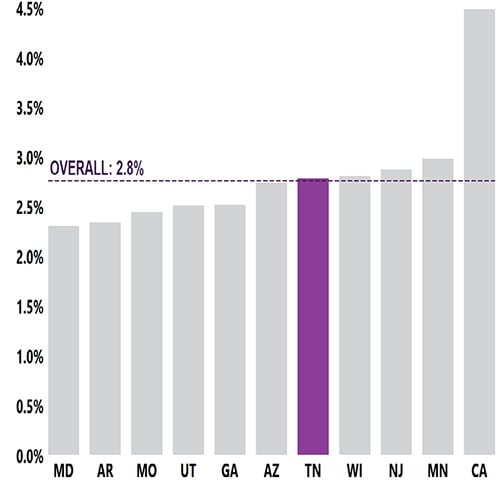
This percentage is the same as the overall percentage identified with ASD (2.8%) in all communities where CDC tracked ASD among 8-year-olds in 2020.
1 in 36 or 2.8% were identified with ASD by TN-ADDM in 2020.
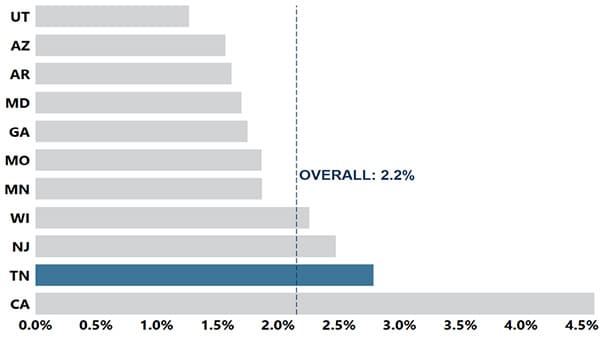
This percentage is higher than the overall average percent identified with ASD (2.2%) in all communities tracked by the CDC.
Black children were 1.5 times as likely and Hispanic children were 1.3 times as likely to be identified with ASD by age 4-years as White children.
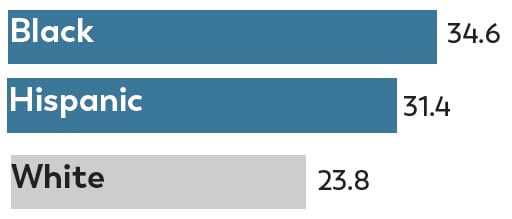
Children who were age 4 were twice as likely to receive an ASD diagnosis or ASD special education classification by 48 months of age compared with children age 8 years.
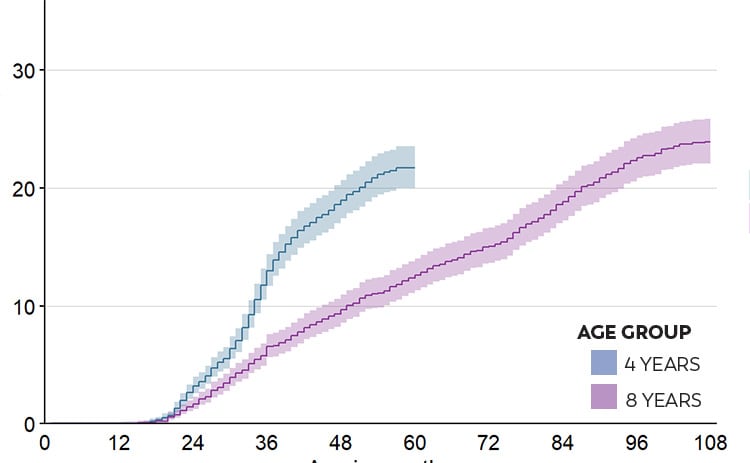
4-year-olds who met the ADDM case definition
- 71% diagnosed by a healthcare provider
- 33% had Autism special education eligibility
- 93% had an ASD ICD* code
*International classification of disease code
44% of 8-year-old children and 67% of 4-year-old children identified with ASD received a comprehensive developmental evaluation by age 3 years.
While COVID-19 shut-downs initially impacted the number of evaluations completed, TN saw some recovery by the end of 2020. It is possible that telemedicine-based assessment protocols helped.
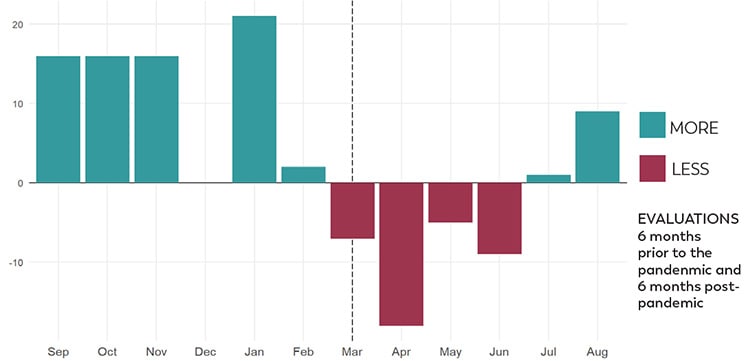
What are the key take-away messages from TN-ADDM?
- There are many children living with ASD who need services and support. The number of 8-year-old children identified with ASD in the area covered by TN-ADDM increased from 2.3% (1 in 44) in 2018 to 2.8% (1 in 36) in 2020.
- Although an increasing number of children with ASD in Tennessee (44% of 8-year-olds; 67% of 4-year-olds) are initially evaluated prior to 3 years of age, many children are still diagnosed at later ages (median age of diagnosis was 48 months of age among 8-year-old children with ASD).
- About 1 in 36 (or 2.8%) of 4-year-old children were identified with ASD by TN-ADDM in 2020.
- In Tennessee, Black children and Hispanic children were more likely to be identified with ASD by age 4 years than were White children. This may reflect improved service and advocacy efforts targeting traditionally underserved communities.
- The increasing number of children identified with ASD in Tennessee may be tied to complex factors related to awareness and capacity for service.
How can this information be useful?
TN-ADDM’s findings can be used to:
- Inform policies that promote earlier identification of ASD.
- Plan for ASD services and training across the lifespan.
- Increase awareness of ASD among traditionally underserved families.
Partners in Tennessee might consider different ways to:
- Continue to lower the age of first evaluation by community providers.
- Increase awareness of need for services and intervention opportunities for the growing number of Black and Hispanic children identified with ASD.
- Work to identify opportunities and address barriers to build capacity for systems of care that promote equitable and accessible screening, services, and supports for all children.
How and where was this information collected?
TN-ADDM uses a record review method. Specifically, this information is based on the analysis of data collected from the health and special education records of children who were 4 years old and 8 years old and living in one of 11 counties in Middle Tennessee in 2020.
Tracking area
Bedford, Cheatham, Davidson, Dickson, Marshall, Maury, Montgomery, Rutherford, Robertson, Williamson, and Wilson counties
8-year-old children in tracking area: 25,588
- 60% White
- 17% Black
- 13% Hispanic
- 5% Multiracial
- 3% Asian or Pacific Islander
- <1% American Indian or Alaska Native
4-year-old children in tracking area: 26,474
- 60% White
- 17% Black
- 14% Hispanic
- 6% Multiracial
- 3% Asian or Pacific Islander
- <1% American Indian or Alaska Native
*Estimates may not sum to 100% due to rounding.
“The data provided by TN-ADDM directly aligns with our goals of enhancing care and support of children with autism across all 95 Tennessee counties. Specifically, TN-ADDM data allows us to translate important community data regarding autism prevalence into meaningful action that better serves the underserved of our state.”
– TOBI AMOSUN, MD, FAAP
Assistant Commissioner of the Division of Family Health and Wellness, Tennessee Department of Health
Resources
VANDERBILT KENNEDY CENTER (VKC)
https://vkc.vumc.org/vkc
TREATMENT AND RESEARCH INSTITUTE FOR AUTISM SPECTRUM DISORDER (TRIAD)
https://vkc.vumc.org/vkc/triad/home
TENNESSEE DISABILITY PATHFINDER
1-800-640-4636
https://www.tnpathfinder.org
TENNESSEE EARLY INTERVENTION SYSTEM
1-800-852-7157
www.tn.gov/didd/for-consumers/tennessee-early-intervention-system-teis.html
AUTISM TENNESSEE
615-385-2077
https://autismtennessee.wildapricot.org/
CDC’S LEARN THE SIGNS. ACT EARLY.
Toni Whitaker, MD Tennessee’s Act Early Ambassador
https://www.cdc.gov/ncbddd/actearly/ambassadors-list.html
CONNECT WITH TN-ADDM
Zachary Warren, PhD
VKC/TRIAD
110 Magnolia Circle
Nashville, TN 37203
1-877-ASD-VUMC
autismresources@vanderbilt.edu
Pages in this Report
- 2023 Community Report on Autism
- Executive Summary
- Key Findings from the ADDM Network
- A Deeper Dive
- Spotlight On: Progress in Early Identification Disrupted during the COVID-19 Pandemic
- Spotlight On: A New Pattern in Racial and Ethnic Differences
- Data for Action
- ADDM Network Site Snapshots Overview
- A Snapshot of Autism Spectrum Disorder in Arizona
- A Snapshot of Autism Spectrum Disorder in Arkansas
- A Snapshot of Autism Spectrum Disorder in California
- A Snapshot of Autism Spectrum Disorder in Georgia
- A Snapshot of Autism Spectrum Disorder in Maryland
- A Snapshot of Autism Spectrum Disorder in Minnesota
- A Snapshot of Autism Spectrum Disorder in Missouri
- A Snapshot of Autism Spectrum Disorder in New Jersey
- ›A Snapshot of Autism Spectrum Disorder in Tennessee
- A Snapshot of Autism Spectrum Disorder in Utah
- A Snapshot of Autism Spectrum Disorder in Wisconsin
- Glossary
- References